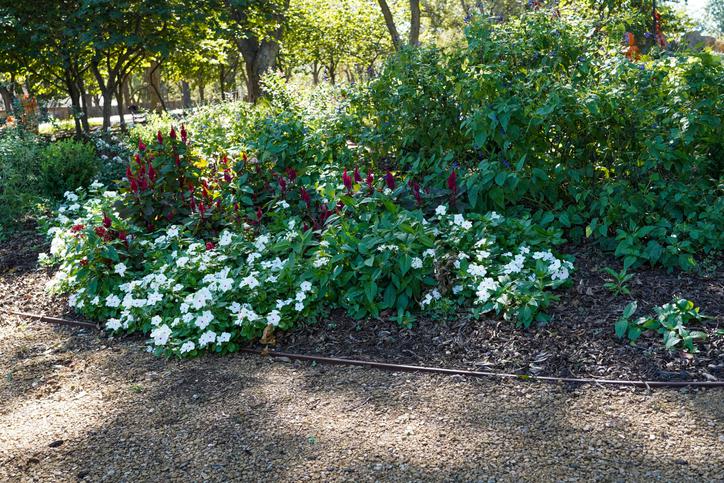
Summer heat can make maintaining a garden and lawn a costly proposition -- think of the water bills! Not to mention droughts in various parts of the country can mean local watering restrictions in some areas. If you want to conserve water, save money and still keep your yard looking great, try xeriscaping.
What Kind of Scaping?
Xeriscaping means landscaping your yard so it needs little or no water to thrive -- “xeros” is Greek for dry. Applying the concept to your property can save between 50 to 70 percent of your outdoor water consumption, according to EarthEasy.com.
Other advantages are an end to mowing the lawn, no need to apply chemical fertilizers or weed killers and less maintenance overall than the average landscaped yard.
There are a few core principles to make your xeriscaped yard a success:
- Use local plants that have adapted to grow in your specific climate. Look for species that are drought-resistant and require little or no watering.
- Work with the layout of your property, taking advantage of shaded areas, sunny spots, hills, and troughs to plant flora appropriate to each condition. Dry, south-facing plots are perfect for plants that don't need water, while northern slopes can accommodate species that like wetter conditions.
- Reduce your lawn space or eliminate it entirely. If you do grow grass, look for water-saving types.
- Mulch around your plantings to capture moisture, inhibit weed growth and reduce erosion.
- If you still need to water your plants, use drip-irrigation or a soaker hose so the water arrives slowly and doesn't cause runoff.
Seeding Successful Soil
Your soil composition is also important in a xeriscaped yard. The ground that has too much sand or clay can leach or repel minerals and water, so you'll want to amend the dirt with organic material and compost to improve its texture and give your plants a head start.
There are a number of resources available online to learn more about xeriscaping and get tips on choosing plants for various areas of the country. Check out the information and advice on Sustainablesources.com, Eartheasy.com and this Colorado State fact sheet for more ideas.
Call your local Benjamin Franklin Plumbing at 1-877-BEN-1776 for more money-saving tips. We're always here to help!
